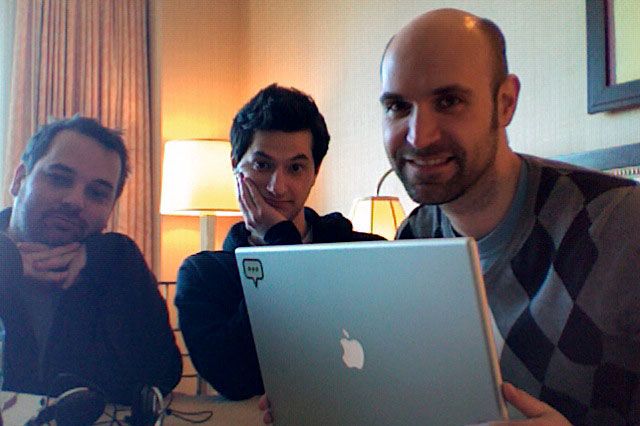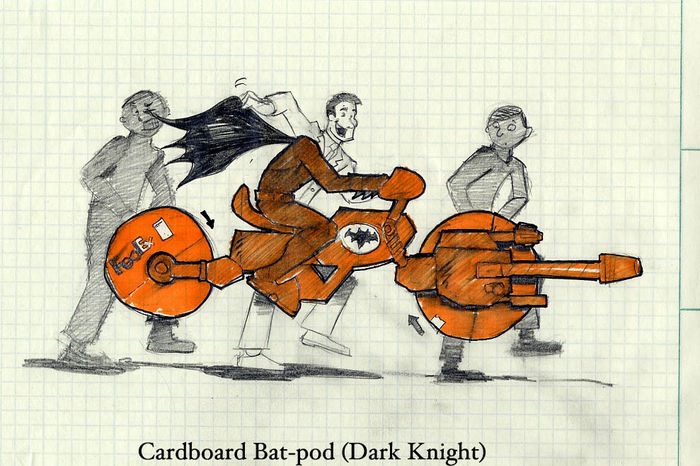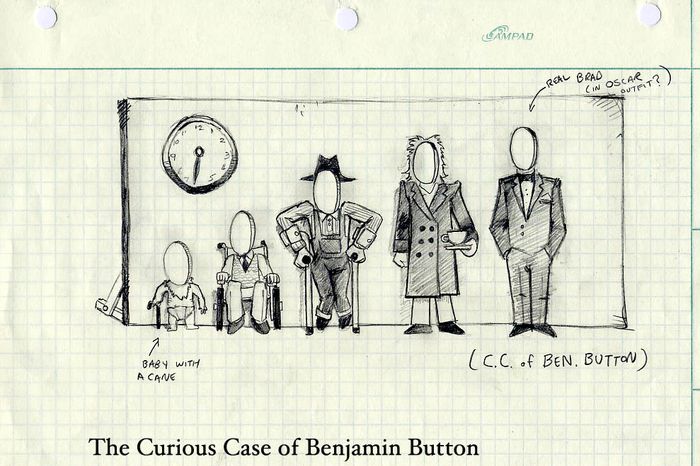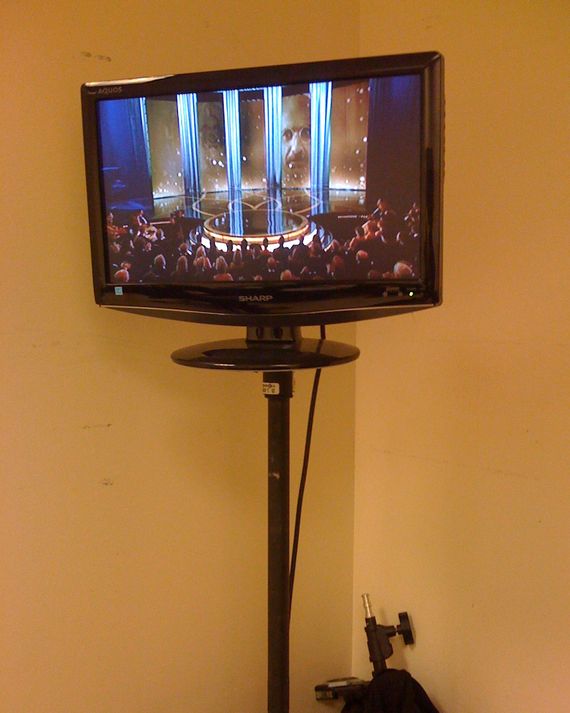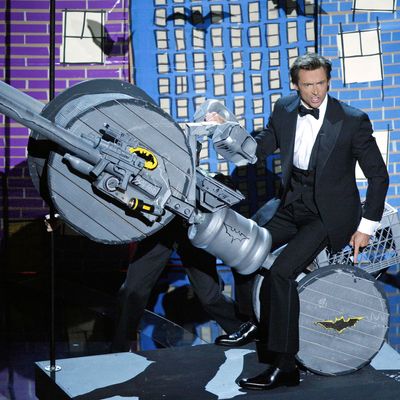
In 2009, in the midst of a financial meltdown and with a slate of Best Picture nominees that included nary a blockbuster, the Academy Awards seemed certain to be a mess. Plus, instead of a well-known comedian for a host, they’d chosen Hugh Jackman, a superhero, sure, and a song-and-dance man who’d hosted the Tonys three times before, but not necessarily someone you’d expect to triumph in the face of the ceremony’s notoriously tough audience. But then came Jackman’s opening number, a silly yet charming celebration and roast of the Best Picture nominees, which managed to include an all-time great joke about The Reader revealed to anyone who wasn’t already aware that Anne Hathaway could really sing. It was a dang good time and arguably, at least according to the show’s producers, the inflection point in movie history that led to Les Misérables and The Greatest Showman.
Ten years out, Jackman’s performance hasn’t been topped, and in honor of its anniversary, we went back and talked to the key players that made it happened, including producers Bill Condon and Laurence Mark and the musical number’s trio of alt-comedy writers: Dan Harmon, Rob Schrab, and Ben Schwartz. The three of them went on to win an Emmy for their work at the Oscars, but their hiring was a relative gamble at the time, and they made the sequence work with little rehearsal time, the heroic enthusiasm of Jackman, and cardboard sets that Schrab built himself.
Laurence Mark (producer): First of all, nothing against comedians, by the way, but we had just seen a series of comedians [as hosts]. So, we thought, Let’s get a song-and-dance man, if we can, to change things up a bit. Then, once you get a song-and-dance man, you don’t ask him to do a comic monologue. You instead ask him to sing and dance. That’s why Hugh Jackman turned out, in a way, to be the perfect answer to our prayers.
Bill Condon (producer): We thought, Let’s make it a good time inside the theater again. So we rebuilt the theater so the stage was closer to the audience. Hugh was an essential part of that decision because, you know, it’s all about the tone you set. There’s something about Hugh that is so disarming and open and charming. In his great Australian way he’s not better than anybody; he’s not cooler than anybody.
Mark: During commercial breaks he would hurl candy, and he would do stuff that had nothing to do with what was being telecast. He just kind of was having some fun with the audience and keeping them, hopefully, having a good time.
Condon: The Academy ebbs and flows, and I think they were in a moment where they were looking to do something different. That’s the only reason we got hired, frankly, because we had a set of ideas about a different way to approach the show. The opening was sort of it’s own separate thing from the rest of show. We hired screenwriters we loved, you know, Jenny Bicks and John Hoffman [for the rest of the show]. We had that notion that we were gonna tell a story during the show. Hugh was actually going to kind of take us through the process of making a movie.
Ben Schwartz (writer): I had just moved from New York to L.A. and I had a meeting with John Palermo, and it was just about script writing for Hugh Jackman. I was a young little boy with very few credits. He said, “Hugh Jackman’s gonna be hosting the Oscars, do you have any ideas?” I told him some ideas and I sent him a bunch of jokes, and he dug it. I think two days later he said, “You have to fly back to New York in three days, and you’re gonna be writing with Harmon and Schrab.”
[Palermo was Jackman’s co-producer at the time, and later produced movies on his own, though he eventually disappeared from Hollywood after posting racist rants on Facebook.]
Mark: Hugh, on his own, does his thing in New York, by the way. Obviously we’re Skyping and we’re exchanging pages and ideas and whatever else, but he drives himself harder than anybody. But we were always sort of in touch with what he was up to and what they were up to.
Dan Harmon (writer): We also had a meeting with Palermo. He set up this weird event that happened, because he, I think, just wanted to do something so different. I think for me and Schrab, it was his fandom of The Sarah Silverman Program, which we created with Sarah for Comedy Central.
Rob Schrab (writer): What he told us was, anybody that could do raunchy, out-there stuff like The Sarah Silverman Program plus be able to do a family, kid movie like Monster House [the 2006 movie Schrab and Harmon wrote] is exactly the kind of talent we want. It was very quick. It was kind of like, “So, you wanna do it?” And we were like, “Yeah.” Then, a couple days later, we were on a plane.
Harmon: So far, this process did not include any references to singing or dancing. It’s just like, “Do you guys wanna write for Hugh Jackman who’s gonna host the Oscars?”
Schrab: They were also saying, “We definitely don’t wanna do anything like what Billy Crystal was doing.” We wanna stay away from that.
Harmon: We were in the middle of this weird economic collapse. There was this tremendous fear of appearing elitist [at the Oscars]. Those were all things that were going on. Schrab called me over to his apartment, and had been watching the Tonys that Hugh had hosted [in 2004, 2005, and 2006], and Schrab’s like, “Have you seen this?” We hadn’t met Ben yet, but Schrab took this idea of the economic depression and said, “Why don’t we have Hugh be this Boy Scout song-and-dance man, and in order to save money, he’d build it all himself, put it all together with cardboard and hot glue?”
The next thing I remember is that Schrab and I are in the elevator in New York, very nervous. We’re so in love with this idea, but it’s just an idea. We haven’t pitched it to anybody. Then, Hugh Jackman gets in the elevator with me and Schrab.
Schrab: That’s how we met. Then we pressed up, and we were in there, and Dan did the elevator pitch.
Harmon: By the time we got off on the top floor, I swear, literally, Hugh physically bounded out of the elevator, leaping with enthusiasm about this idea. Thank God, because we ended up getting a little bit of resistance to it, but we had this weapon on our side. Hugh would describe the idea and leap up onto chairs in the room. No one can say no to him when he’s that enthusiastic.
Schwartz: My version of this is, I don’t remember if I pitched Palermo before I left, or maybe when I got to you guys. Literally, I was writing the same exact idea that Dan and Rob had had. I was so nervous on my end that they wouldn’t like it, or anybody wouldn’t like it as well. There was so much stuff around the recession and so much stuff about having no money. How funny would it be if it’s like, “He still wants to pull it off, and wants to do a huge musical number, but with almost no budget?”
Schrab: To start out of the gate with the concept was really, really a gift. To get off the elevator, have the star already onboard, meet Ben, who’s already kind of in the same mind-set, to start Monday morning. We know what the idea is, now all we have to do is write it. Hats off to Hugh, who is just so warm and positive, and just committed. Any time we pitched him something, it would be printed out, and he would grab it, and he would just start singing it full volume.
Harmon: I have the most unabashed man-crush on this guy. I would just stare at his face while he sat next to me, and look for a pore, and I never found one.
Schrab: Dan and I, we do Channel 101, which is this monthly video festival, where it’s very television-centric. And every year we have this thing called the Channel 101 Awards. We lean into, like, “We don’t have any money, so it’s all cardboard and hot glue.” That’s kind of my style, I build a lot, sculpt a lot. While we’re writing [for the Oscars], I’ve got my sketch pad and I’m drawing up stuff. As soon as we got back to Los Angeles, [The Sarah Silverman Show production designer] Mike Whetstone got us a space to build this stuff. We just built everything in two days. It was all hot glue and … it was nonstop building, building, building, building. Paint was drying backstage as the show was about to go on.
Schwartz: Schrab can create these things that nobody else can create.
Harmon: In the area of not forgetting to credit people, this one’s really important and somewhat, a little bit regrettable. Schrab and I were sitting in this piano bar next to the hotel where we were working, and there are guys that will get up and do, sing some show tunes and things if the mood strikes them. And as we’re struggling with that, a guy got up at this bar, and he started singing a number from Jekyll &Hyde the musical. The song was “This Is the Moment,” and Schrab pointed out the vibe of that song and said, “You know, the angle is that Hugh’s a Boy Scout, and he doesn’t want to let anybody down, and that’s why it’s positive. It’s not snide. It’s not mean. It’s not satirical. It’s that Hugh can’t wait to host the Oscars; he really wants to do the best he can.”
The melody and the tone of that song from Jekyll & Hyde was so inspirational. Because I’m not a professional musician, when I write lyrics, I tend to use a derivative melody. When it’s time to come up with official melodies, I’ll sit down with, in this case, [songwriter] John Kimbrough, who did a lot of work with Tenacious D. John Kimbrough comes out from New York with his guitar, and I say to him, “This is the song I’m ripping off, but I don’t wanna rip it off, so let’s change this a lot.”
Kimbrough was really good at that, but because then Kimbrough didn’t continue his work all the way through to the final show, along the way, another equally talented, amazing composer William Ross comes in. He makes a couple tweaks to the song. Kimbrough’s not there, and I don’t tell this guy, “By the way, there’s a song that this was ripping off and is no longer ripping off.” Somewhere along the way that process caused us to accidentally, totally unintentionally — but to be fair, for a reason — rip off the song that we were originally ripping off. The guys that wrote that song rightfully heard it and said, “These six notes or whatever, this is basically our song.” We were able to get their names added to the cue sheet for that number.
Schrab: They were actually way cooler than they had a right to be. They were like, “Look, we don’t want any money. We don’t want any of this. We’re not gonna do anything. We just want you to share credit with us.” Of course, we were like, “Yeah, you deserve it.” Again, hats off to them for being so cool about it.
Before the musical sequence starts, Jackman’s monologue opens with one joke about how everyone who got nominated showcased their range, and he played an Australian in Australia, and didn’t get nominated.
Harmon: It was this long joke about him playing “I’m an Australian in a movie about Australia and I’m out here.”
Schrab: I think Hugh came up with that.
Schwartz: I also remember us as a team thinking that this guy’s strength is singing and dancing. We don’t want to make a 45-minute monologue for him, that’s not what he does.
The monologue begins with Jackman in a set mocked up like Slumdog Millionaire, and then transitions into a song about Milk with “Craigslist Dancers.”
Harmon: I remember just wanting to start with something simple that we knew we were gonna want to reprise. I think we sat there and tried to figure it out based on sets first. We wanted to have this sort of seamless thing where the sets are converting one from the other.
Then, there’s an interlude about The Dark Knight, which was notably not nominated for Best Picture that year, which was also the year before the Oscars expanded the Best Picture slate to include more than five nominees.
Harmon: The Batman song was Schrab’s baby, for sure. It was Schrab’s, like, 10-year-old-boy anger.
Schrab: When I was drawing these things, I think the very first drawing was the Bat-pod that I did, because I know, Oh, I can make that. These will be milk jugs; this’ll be a mailing tube. You look at the silhouette and you’ll know that we’re talking about the Batman movie.
Harmon: It is absolutely the beginning of the new era of Marvel. We’re referencing that, and The Reader song, too. We wanted to see The Reader, but there was a line of people wanting to see Iron Man a second time.
In the sequence about Benjamin Button, Jackman ages backward by sticking his head through cardboard cutouts.
Harmon: This thing was so not rehearsed, it was so under-rehearsed. I was absolutely shitting my pants. I remember, because Baz Luhrmann was doing his thing in the middle that was a tribute to the musical. It was such a big thing, and it just kept expanding in terms of rehearsal needs. We literally had one full tech rehearsal of this thing.
Schwartz: That sounds about right.
Harmon: The doors were being barred shut so that we could squeeze in this rehearsal of this thing that they were about to watch. The Benjamin Button thing was the benchmark. It was basically physically impossible for a human being to move their head into each of those holes at the right times for those lyrics, and we could only discover that by building that set, and getting it on its feet, and rehearsing it the one time. That one full tech rehearsal we just learned that Hugh can’t possibly get his head into each of these holes at the right time, and Hugh was like, “I can do it. I’ll just go faster.”
For Frost/Nixon, Jackman pulls Anne Hathaway from the audience, and she pretends to be confused until she starts singing along with him.
Mark: Hugh wanted to pull someone out of the audience, for sure. But at the Oscar nominees luncheon, Suzan Bymel, who manages Anne Hathaway, literally came up to us with Anne Hathaway twice during the lunch, in just an amusing way to say, “Just so you know, Anne Hathaway sings. Just so you know.” With a tongue in cheek, it was done like that. We smiled and said, “We’d love to know that for future reference.” When it was time for the rehearsing of the show, well, Anne Hathaway was a nominee, and it was like, “Anne Hathaway sings, apparently!”
Schrab: This is 2008. People love Anne Hathaway, and she can sing, so let’s write something. I think [Ben] just kind of took that, and just came up with this.
Schwartz: I remember that moment exactly, like, “Hey, we really want to use Anne Hathaway, do you have any ideas?” and everybody was working on sections and lyrics, so I was like, “Okay, I’ll try to do this.” I did this show with Hot Sauce at Upright Citizens Brigade, and I always loved the idea of looking like you’re just going out into the audience and bringing someone in, and it looking sloppy because they don’t know what’s going on.
I had to sing the song into my voice-memo note, and the first time I did it with Hugh. I did Anne Hathaway’s part to pitch him on it. It was crazy; it was so fun. It brought in the audience, even more.
Schrab: Up until that point, in the back room where we were watching the show, I was like, “Is this working? I don’t know. They seem to see it as funny” or whatever, but once that happened, we just rode it all the way to him standing up and singing, “I’m Wolverine.”
Schwartz: The two things I wanted to make fun of [with Frost/Nixon] were, if we have to bring Anne Hathaway in to sing the Nixon thing, Frank Langella was sitting right next to her. Another thing is, when I watched Frost/Nixon, Nixon’s upper lip was always so sweaty, the whole movie was so sweaty.
Mark: Bill and I take full credit for the two of them being in Les Mis.
For The Reader, Jackman does a surreal modern dance about how he hasn’t had time to watch the movie.
Schwartz: When we’re going through the movies to see how we’re gonna write lyrics, we got to The Reader, and literally, all of us said, “We have not watched The Reader.” It wasn’t that we hated it, we just cannot get to — we had not gotten to it. I think, was it Harmon or Schrab who wrote the Reader bit?
Schrab: It was Dan.
Harmon: And actually Hugh had spent all this time in New York while we were in L.A. He comes into L.A. all excited and we go to this rehearsal space, and he’s like, “Guys, guys! You gotta watch this!” He spent days choreographing — I don’t know if he choreographed it or if someone choreographed it with him — but he was working on this whole Reader dance, and he couldn’t wait to show us.
Mark: I bet he did do his homework [and watched The Reader], because that’s Hugh. But he’d rather have some fun making fun of himself, in a way. I think why that was funny was that he was making fun of himself, not the movie.
Condon: Also, there is this relentless thing. He’s gonna do a number about each [nominee]. Around movie No. 4, it’s sort of like, Oh Christ. I think it was a nice jolt to get, “Don’t worry, I’m not gonna do The Reader. I’m gonna use this as a chance to kind of say, ‘What the fuck? The Reader got nominated and not The Dark Knight?’” Which was obviously a big issue surrounding it all.
As the sequence moves into a finale, Jackman sings about being like Mickey Rourke in The Wrestler, and then the song crescendos into him belting, “I’m Wolverine!”
Harmon: I remember [Jackman] pitching the Mickey Rourke hair thing. Honestly, I don’t even get that reference, but Hugh kept wanting to do it.
Schrab: The final lyric of Hugh Jackman getting up and saying, “I’m Wolverine!”There were a lot of people going, “I don’t think we should do that; it makes him look stupid. This is not a comic-book thing.” I think Dan was the one to put his foot down and go, “You guys are crazy. The Wolverine bit is gold. Trust me.” I can’t imagine us getting a standing ovation if it wasn’t for him, standing up and singing a note that only Wolverine could sing.
Harmon: It’s not because it’s clever or meta. It was the opposite. It was important, because there needed to be the emotional through line of that piece, which was Hugh’s innocence, because that was the way we were going to sidestep this whole economic thing, and not come off as snarky, satirical. It was a big concern for people when we were pitching the cardboard thing, they were like, “Yeah, but isn’t this making fun of poverty?” For him to hit that operatic tone while referencing his comic-book movie, he validates Hollywood even in times of terrible, bitter reality in the checkbook. It’s like, “Oh, yeah, this is why I like movies, because they’re childish, and they’re silly, but they’re passionate, and that has nothing to do with class or money.”
Mark: At some point while Hugh was onstage rehearsing, I think I turned to Bill and said, “Gosh, what a showman he is,” then somehow P.T. Barnum came around, and I said to [Jackman] at some point later on, “I don’t know if you have any interest, I don’t know, we were just thinking about you as P.T. Barnum and the greatest showman on earth.” Hugh Jackman said, “I love that idea. If you want to explore it, feel free to knock on my door when you have something more to sort of talk about.” The next person we spoke to was Jenny Bicks who was a writer on the Oscars who was standing about ten feet away. We said, “Jenny, would you mind thinking about P.T. Barnum?’ She came up with the first draft of the screenplay [of what became The Greatest Showman], which Mr. Condon was kind enough to refine and hone and make even more brilliant.
The writers watched the show on a small TV screen hidden away in the theater.
Schrab: We were in, like, a janitor’s closet. There were mops against the wall.
Harmon: No exaggeration, because I haven’t had a kid yet, it’s still just the greatest, proudest moment of my life. Hugh came out, he did the long Australia joke, and then he starts doing the thing. It was like that horse-track feeling, where you’re just like, “Am I watching what I think I’m watching? Is it going good?”
Schwartz: We were nervous and pacing. I remember pacing in all our schlub tuxes that did not fit us. At the end, everybody is clapping, then all of a sudden there’s a standing ovation, and we’re watching it. We were jumping up and down.
Harmon: I’m surprised we didn’t break each other’s toes, but I was limping for six months afterward. I never went to the doctor, but I seriously damaged something in my foot. I assume if I broke a bone I would know because it would be — I would have gone to the doctor. I messed up my foot, and I was so happy about it because it was a conversation starter and the conversation was gonna be about this amazing thing that happened.
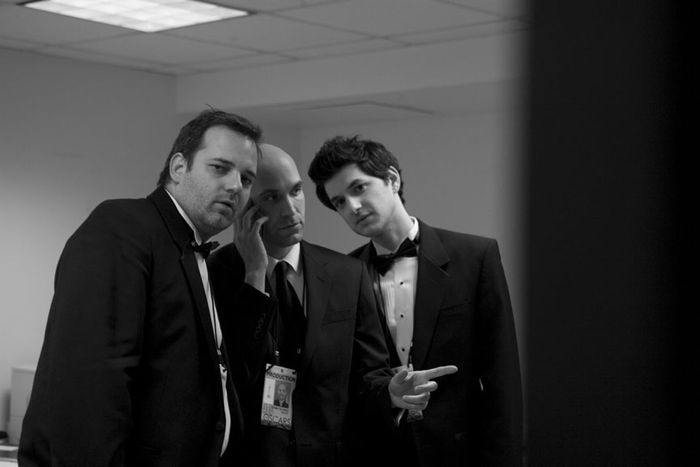
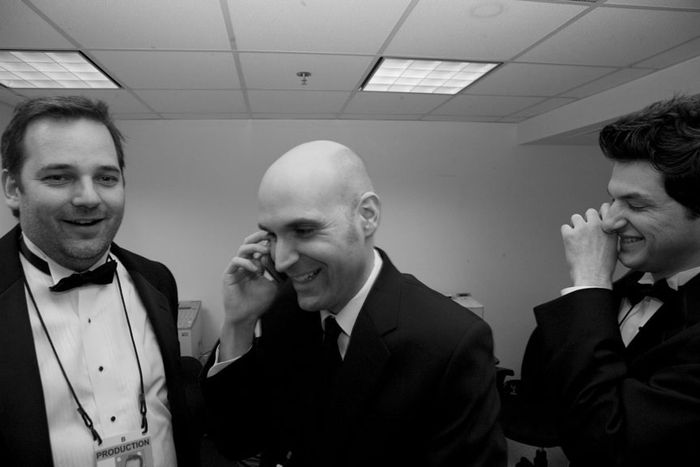
Schwartz: I’ll never forget when people started giving the standing ovation; we could not believe that anything that we wrote could get a standing ovation. For some reason, the camera cut to Sean Penn, he was just still sitting down, and all three of us pointed at the screen and said, “Stand the fuck up, Sean Penn! Sean Penn, stand the fuck up!” He either did, or they cut to somebody else who stood up, and we just went crazy. We went crazy.
Condon: I remember a few [reaction shots I was proud of catching], but even ten years later I can’t say it. If you notice on those awards shows, there are televisions in the theater so that people can also watch the feed of what’s going on in the show. Our thought, which made some sense, was let’s not show them that. Let’s force them to watch what’s happening in front of them. Which seems like a good idea; however, those great moments when somebody is interacting with Hugh and they can see themselves on camera and then respond to the fact that they’re on camera, that’s something that we missed.
Harmon, Schrab, and Schwartz, along with songwriters Ross and Kimbrough won 2009 Emmys for their work.
Schrab: That was a crazy thing. The competition that year was Flight of the Conchords, the Lonely Island, the Muppets …
Schwartz: … Stephen Colbert.
Schrab: We’re just sitting there, and it’s like, “Oh, okay, here we go. Get ready to applaud for the Lonely Island.” Because they’re the best and everything.
Schwartz: We kept saying, “Timberlake’s gonna win.” [Timberlake was also nominated for “Motherlover” with the Lonely Island and a song from the ESPY Awards.] Of course he’s gonna win, he’s incredible. I had brought Aubrey Plaza because I knew her from UCB, and we were friends. I was like, “Don’t worry.” And then we won. Harmon’s speech is a perfect button on the whole experience because it’s a speech as if it were given from someone from our crew, someone from our dummy, idiot type of comedy that we like. It’s so real.
Harmon: By the way, here’s an insider tip: If you ever think you’re going to win an award, make your speech about how ugly you are, which was my narcissistic bit. Where I’m like, “Oh, we’re the ugly nerds. They moved this award to the prime-time broadcast because all the other nominees are famous handsome people and the ugly nerds won, and I’m sorry about that” or whatever. Because I took that angle, for the entirety of the Governor’s Ball, every single celebrity, every single human being that talked to me, most of whom were famous, good-looking people, their icebreaker was, “By the way, I think you’re very attractive.”



